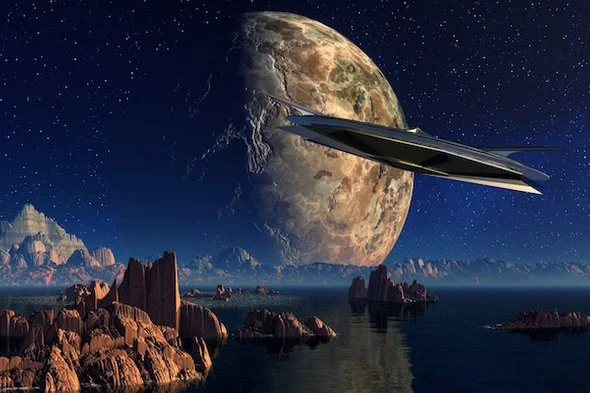Drawing on a universe of science fiction franchises including The Expanse, Star Wars, Star Trek, Ender’s Game, Starship Troopers, Dune, Earthseed, The Murderbot Diaries, and many more, a wonderful array of authors, who are strategic thinkers in their own right, offer fresh perspectives in 35 chapters that span 6 major themes: leadership and command; military strategy and decision making; ethics, culture, and diversity; cooperation, competition, and conflict; the human relationship with technology; and toxic leaders.
AI in Fiction and the Future of War
Fiction is a great way to explore the possibilities and risks of AI. Done right, fiction serves as a way to guide the decisions that we make. Unfortunately, many portrayals of AI in fiction focus too far into the future, sometimes imputing capabilities that are unlikely to ever exist, and consequently fail to engage with the challenges that we face in the near future. Better examples address issues that we are going to face soon. Understanding which fiction fits which description helps us to adjust our understanding accordingly.
Science Fiction and the Strategist 3.0
Reading widely in a professional capacity increases a person’s capacity for generating imaginative options to solve complex problems. Reading science fiction provides this variety. We hope this list provides additional variety in personal and professional reading programs, and guides readers through their journey to discover the insights that science fiction offers national security professionals.
The Weird and Eerie Battlefields of Tomorrow
Leo Blanken returns to the the Bridge to discuss the Weird and the Eerie. "The First World War was replete with the weird, due to the presence of things that did not seem to belong. Beyond the massive scaling up of firepower, several qualitatively new weapons were introduced that produced the unsettling effect of the weird."
Science Fiction Short Stories and the Strategist
Aces-High Frontier
You expect an electric crackle, the deep whine of machinery, a bolt of red across a planetary foreground, the roar of rocket engines. Wrong. When the United States Space Force (USSF) is in action, it really couldn’t be less cinematic. Anti-visual even. Yes, the Earth is still an astonishing sight from our perch at the Earth-Moon L4 Lagrange point, but battle itself is rather anticlimactic. No explosions. No starfighters careening this way and that.
Science Fiction and the Strategist 2.0
Reading science fiction nurtures hope that there is a better future. While conflict, catastrophe, and climate change feature in many of these novels and movies, much science fiction is highly optimistic in nature…However, reading science fiction also allows us to consider a variety of negative potential futures…it is the first step in ensuring that they do not come to pass.
#Reviewing The Future of War: A History
Science Fiction and the Strategist: A Reading List
In many ways, science fiction is the forward-looking, speculative complement to history, which provides past precedent and ways of thinking to be considered. Consciously or subconsciously, reading science fiction leads to thinking about the future of our respective services and the profession of arms.










